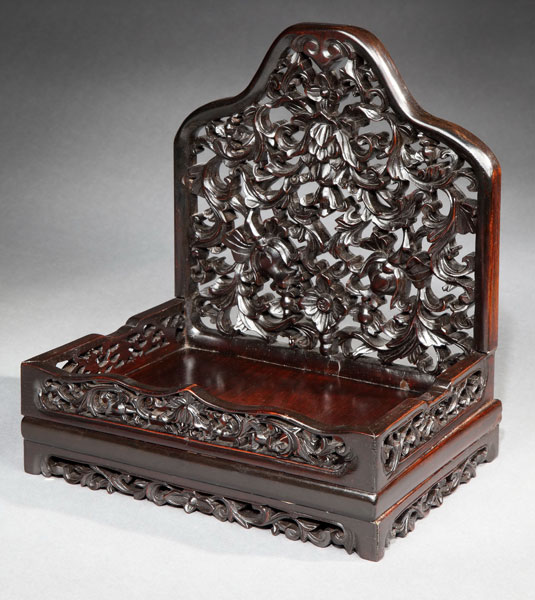 |
|
The rare opium tray well comprises its delicate back and tray. The back is decorated by pomegranate and its flowers, which mean fertility and posterity. The plain tray is made of a single piece of wood, and it also has well decorated guardrails to present the nice carving echoed with the back. Photo Provided to China Daily
|
Also available was an apricot-yellow dragon court robe, produced for an emperor's family in the 19th century, with intricate, double-sided embroidery that is rarely sighted.
Antique Chinese imperial costumes are doing well internationally, says Brandt, with healthy results from the auction houses. Textile specialist Jacqueline Simcox also presented an eye-popping 116 sq cm blue-colored silk seat cover. Woven with bats and peaches, the Zhang work dates back to the Yongzhen period (1723-1735).
A stunning, six-fold Qing Dynasty (1644-1911) paper screen nearly 2 meters high from Gibson Antiques occupied an entire wall by itself at the exhibition.
Ceramic dealers Berwald Oriental Art brought in a pair of 18th-century, Qianlong-marked famille rose vases with a significantly smaller - at least in comparison to the vases' height - pair of famille rose wall scones, also from the Qianlong period (1736-1795).
"Himalayan art is growing among the Chinese community. Collectors are becoming more sophisticated ... They appreciate the beauty and rarity of Himalayan art and the importance of its development for Buddhist art," says Fabio Rossi of Berwald Oriental Art.
We Recommend:
